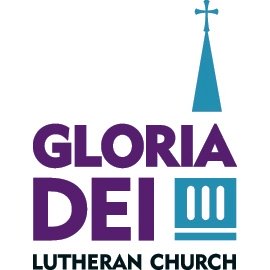On Sundays, you may hear the pastors invite to Christ’s table those who have great faith, and those who wish they had more. Most of us regularly find ourselves in the latter group; we’d like to have a strong sense of God’s presence in the world, a firm conviction of living our lives as if God’s word and will mattered to us, but we have many questions. At times, we wonder if any of this faith-stuff is real. Do we really believe the things we say in the creed? How can we call the Bible the “Word of God,” when we notice so many inconsistencies, so many unscientific revelations? But if we don’t accept these things, can we honestly say we are Christians? What does this mean?
Join the pastors as we explore themes of Christian life, considering the ancient teachings of the church while taking our questions seriously. Whether you were raised in the faith, or are curious about taking the first step, you are welcome to be part of the discussion. This is a 7-week series, 6:30 – 7:30 p.m. on Wednesday evenings beginning September 26. Meets in Room 109 on lower level.
- September 26–An Invitation to Journey. Faith is not a destination; it’s the path through which we discover, question, wonder, delight, wrestle and grow. Can you be open to a process, rather than a set of beliefs?
- October 3–Taking the Bible Seriously but Not Literally. What do we mean by calling scripture, “Word of God, Word of Life”? If we know that there are discrepancies, contradictions and non-historical descriptions of events in the Bible, how can we possibly claim it is authoritative?
- October 10–Thinking Theologically. If God is so good and so powerful, how come there are so many disasters and atrocities? We are not the first generation to wrestle with what it means to trust in God’s power and love, in light of the realities of life. People of faith discover new ways of imagining the Divine.
- October 17—Stories of Creation. Scripture describes the beginnings of the universe very differently than science does. For centuries, the church ignored the advances of science and even condemned faithful researchers who tried to explain their discoveries. But scripture itself is complex and nuanced in teaching us about God’s role in creation, and invites us to consider scientific truths from a faithful point of view.
- October 24 – Lives of Jesus. Wouldn’t it make more sense to read just one really clear and compelling biography of Jesus? Why do we need four different accounts, and what are we supposed to make of the differences and inconsistencies? Who is the Jesus of Scripture and what do the four gospel accounts reveal? Are there other accounts we should consider?
- No meeting on October 31
- November 7 – A Passion for Christ. The New Testament is full of letters Christians wrote about issues and concerns in communities wholly unique and different from our own. What relevance could 1st century dispatches have for 21st century people of faith? Did Paul actually write most or any of this, and how has his legacy shaped theology for us today?
- November 14–Out into the World: Challenges Facing Progressive Christians. Some of the things we hear at church are so different than what the culture presumes Christians believe, we find it hard to share our faith with anyone. How do we use the metaphors that nurture and deepen our spiritual life in conversation with people who have come to expect dogmatic and rigid doctrinal teachings from the church?

